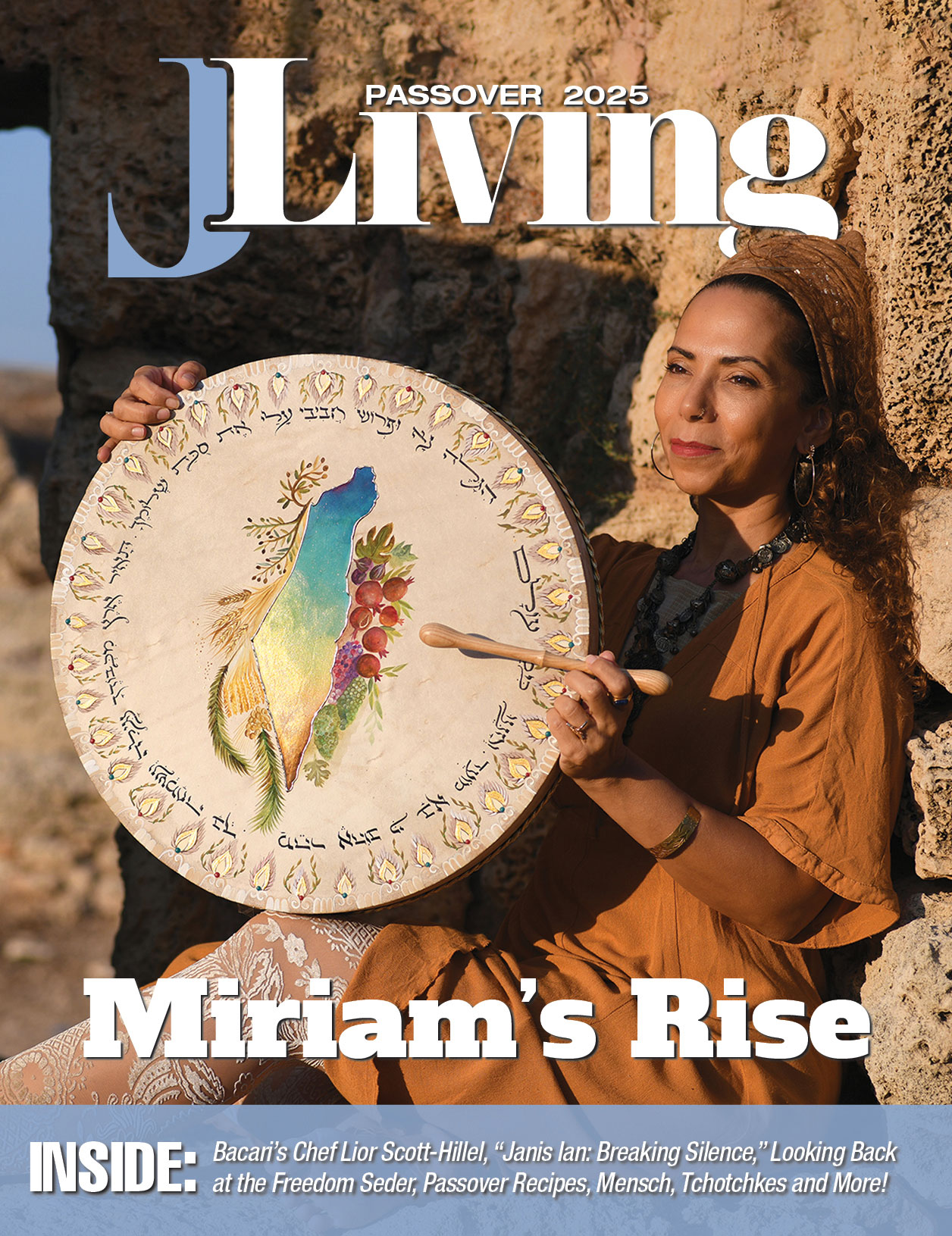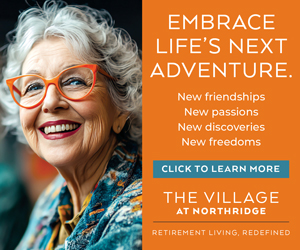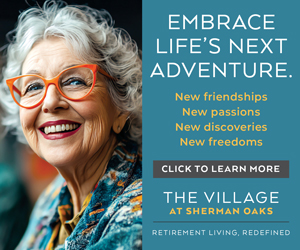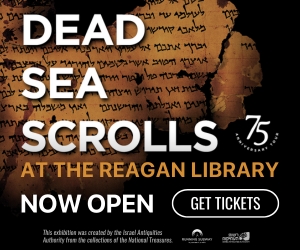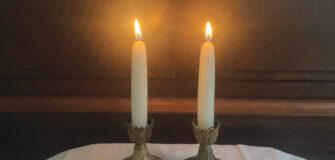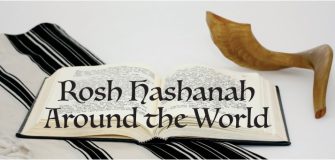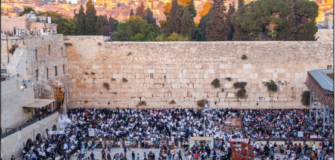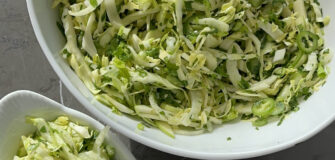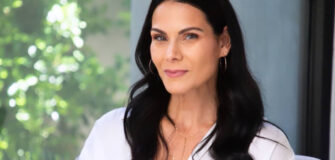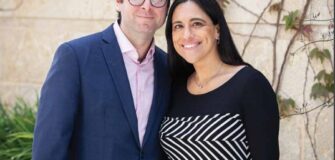The Great Outdoors
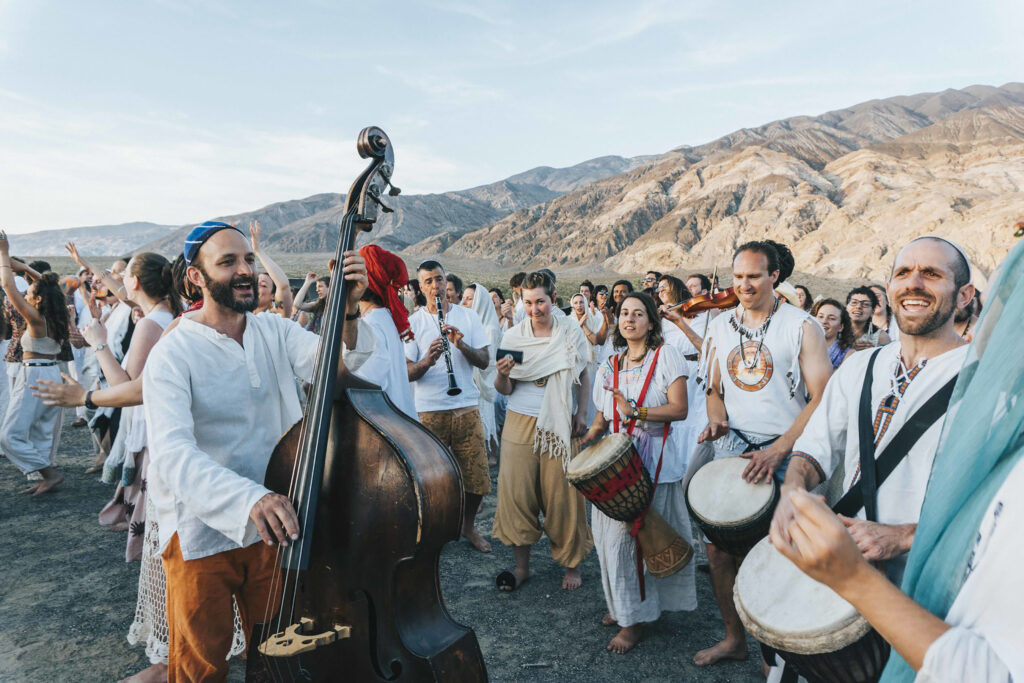

Where do you feel most connected with your Judaism? Is it sitting in services? Is it spending time with family and friends? For some, it involves getting outside and into nature.
Itamar Cohn serves as the Senior Director of Programs & Education for Wilderness Torah, a Berkeley, California-based organization that promotes earth-based Judaism through outdoor experiences and teachings.
“Being out there with a group of teenagers climbing a peak and seeing their eyes light up when they see the view and realizing that they are strong, powerful, capable, and are doing it in a Jewish community – it all comes together and makes sense,” Cohn shared of his favorite offering, the Neshama quest. “We have stories of mountains like this in Jewish tradition, and that is what really lights me up the most.
The Neshama quest, named after the Hebrew word for “soul,” takes a group of teens, ages 14-18, on a backpacking trip in the California mountains, which includes climbing a peak, Shabbat in the wilderness, visiting campsites, and solo challenges.
“For me, what we do on the Neshama backpacking quest, there’s a few things that really stand out. One of them is that we hike, like strenuously hike, but we pause for Shabbat, so we do Shabbat in the wilderness, and actually stay in one place and just hang out and play different games that don’t really require us doing any physical activity,” Cohn reflected.
“Just to see young people like really getting the value of Shabbat, like really learning to appreciate it, and the value of having that break,” he added. “And other times we’ve done like a mikvah in a wild body of water, we’re all standing there and saying the prayers together, and to see them practicing a Jewish ritual that is so visceral and you’re like bringing life, it’s powerful.”
Cohn says that typically 60-70% of their Neshama Quest participants have previously taken part in other Wilderness Torah offerings, like their Passover in the Desert program or other high holiday gatherings, but for the remainder of the group it’s their introduction to Wilderness Torah.
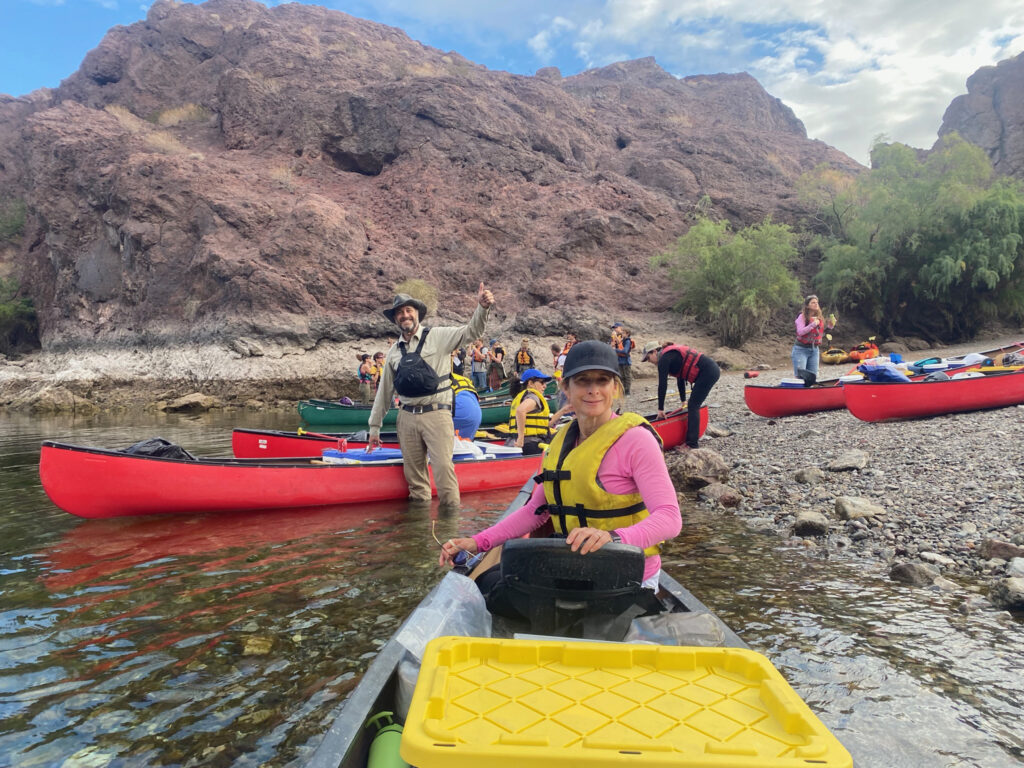
“We have a pretty strong community of participants who come back, we have people who have done like five or six Neshama quests and they come back every year,” Cohn said.
But the outdoor fun can start even earlier, as young as ages 5 and under with their Nevatim program, moving into B’hootz for kindergarten through fifth grade and B’naiture for grades six through eight. Highlights include a family camping weekend, hands-on skills in a redwood forest, and developing connections with local ecology.
“Whatever your life is like, Judaism has something to offer you,” Cohn said, “If you’re more on the observant side, maybe you get to expand your horizons and think about different ways of seeing things. And if you’re on the less observant side, maybe you’ll learn about these traditions.
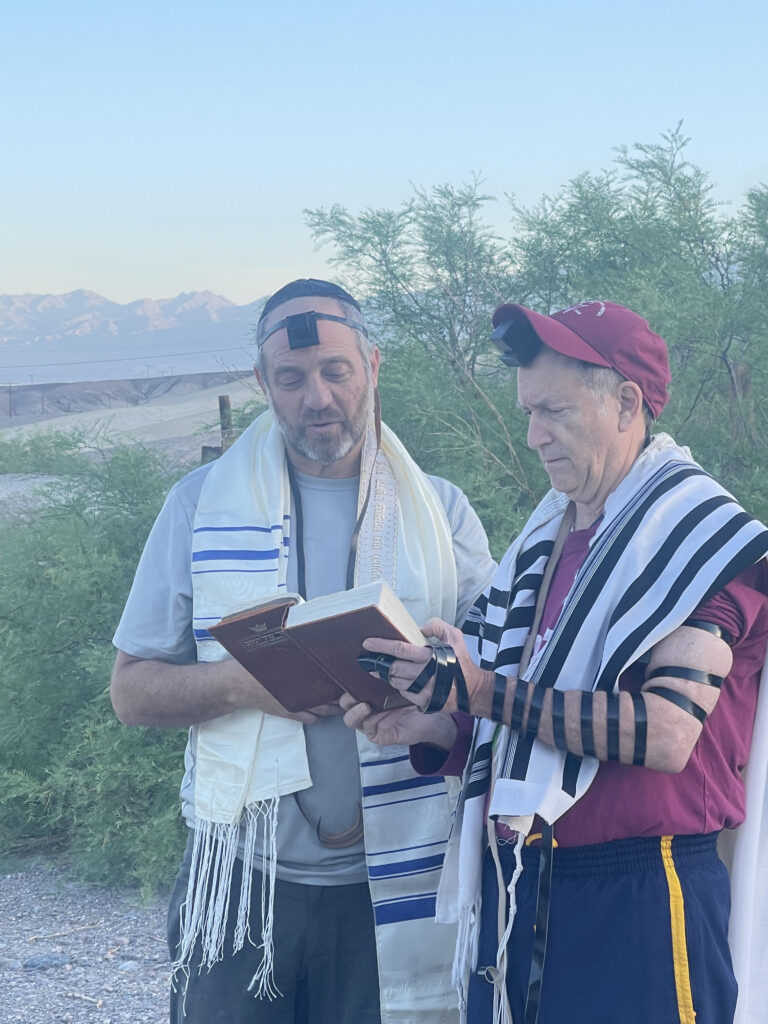
Down in Southern California, Howard Schwartz of HOWTREK is also working to expand the horizons of Jewish adults in the Los Angeles area by leading them into the great outdoors. After several accidents as a teenager, including near-death experiences, Schwartz found that the place he felt most at peace was in nature.
“I actually found that nature was a healing place for me to go when they told me I wasn’t gonna walk straight again, that I was gonna have physical issues and I just wouldn’t allow that to be the interference,” Schwartz shared. “It was almost like a calling me out moment, and so I started hiking and hiking and hiking as a teenager.”
Schwartz explained, “Then I had another accident at the end of my 30s, it was pretty traumatic, and I started teaching hiking and backpacking. It was the same connection with nature, but I found that through my own life trauma that I needed to get outdoors and restore myself, but I had a community of people who wanted to go with me.”
But it wasn’t until he had been leading treks and hikes for nearly 15 years that his faith began to play a bigger role in the business. After a friend connected him with Aish Los Angeles, Schwartz began developing a “full-blown kosher camping experience” with the help of local Rabbis. Not only has he seen the firsthand positive impact it’s made on participants of these trips, but it’s also changed Schwartz for the better.
“For me, as a Jewish man, it actually instilled this huge, greater appreciation for my own personal faith. I’ve adopted new practices in my own life – I wrap tefillin, I’ve done that for several months now, and that’s because I was inspired by camping with these men, and also women and it’s been transformative selfishly,” Schwartz reflected. “I have to say, I’m a benefactor of creating this kosher camping, it’s rippled in my life in a huge way.”
These kosher camping trips include an “elevated food experience,” with no dehydrated food in sight, all prepared in two “completely separate standalone kitchens” – one for meat and one for dairy meals. Plus, “different pieces of equipment, pots and pans, stoves and fuel and utensils, plates and bowls and all sorts of things.”
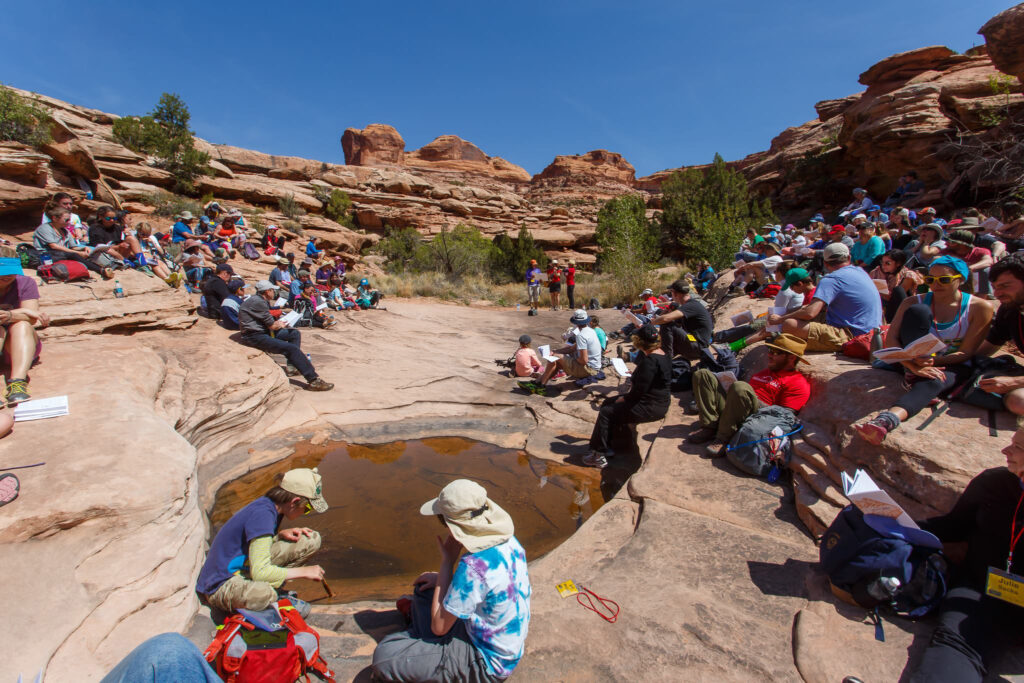
“When a lot of people think of camping, you think of just adding boiling water to a bag. And actually, there are no kosher products in that sector whatsoever. So we’re stuck with making, in a blessing sort of way, all fresh food or packaged food that maintain kosher standards,” Schwartz said.
He explained, “We make epic, humongous, beautiful steaks, potatoes, salads, desserts for the meat meals and milk meals. I make this thing called HOWtrek pizzas, and they’re backcountry pizzas that we make with pita bread, cheese, pizza sauce, veggie toppings and stuff like that.”
As of this writing, Schwartz is in the process of designing a full slate of kosher camping HOWTREK experiences that can be booked by anyone, after word of mouth has been the primary way that Jewish organizations have been introduced to him to set up trips.
“A purposeful part of my life is connecting with people, and connecting with nature. And my highest purpose is connecting people with nature, and when I can bring in my own faith, it elevates things,” he explained.
And that includes building a bridge between Judaism and nature for members of his own family as well. At age 18, Schwartz’s son, who had not previously had a Bar Mitzvah, joined a group of Jewish men on a canoeing trip down the Colorado River from Hoover Dam.
“So on the morning before we left, all the men, all 26 of us, surrounded my son and put a tallis on his shoulders, opened a siddur, and the Rabbis Bar Mitzvahed him right there on the Colorado River.
And it was so profound, so satisfying, and just so many adjectives to describe how beautiful and blessed the experience was.”
For Rabbi Jamie Korngold, a.k.a. Adventure Rabbi, her faith and love of the outdoors have also been a throughline her whole life. The daughter of a congregation president, Korngold’s upbringing was lived by the Jewish calendar.
But it was also in her life outside of the congregation where she felt fully like herself. From summertime in Maine during childhood, to biking across the country at age 17, and even skiing full-time in Vail, Colorado, after attending Cornell University, she lived many lives before attending rabbinical school and launching the Colorado-based Adventure Rabbi program in 2001.
“We started out as mostly taking people that were my age – I was in my early 30s or mid I guess at that point, hiking and skiing and biking and doing all this great outdoor stuff,” Korngold reflected. “What I loved about that was it had that same thing that I had found through Judaism and the outdoors, it gave me a sense of belonging and community and confidence and agency. It was wonderful.”
Things expanded to include Bar and Bat Mitzvah programming and education – which today includes an expedition adventure class, camping, learning Hebrew and how to chant Torah, plus life skills like making matzo ball soup and how to change a car tire – and have since grown into an accessible and nature-based form of Judaism fit for the modern family.
“If you think about it, if you are not a very active Jew, and you still wanted to do some Jewish things, what would you want? You probably wouldn’t want Friday night services every week, but you might want just a few of them,” said Korngold, who offers three Friday night services in the summer at an outdoor amphitheater in Boulder.
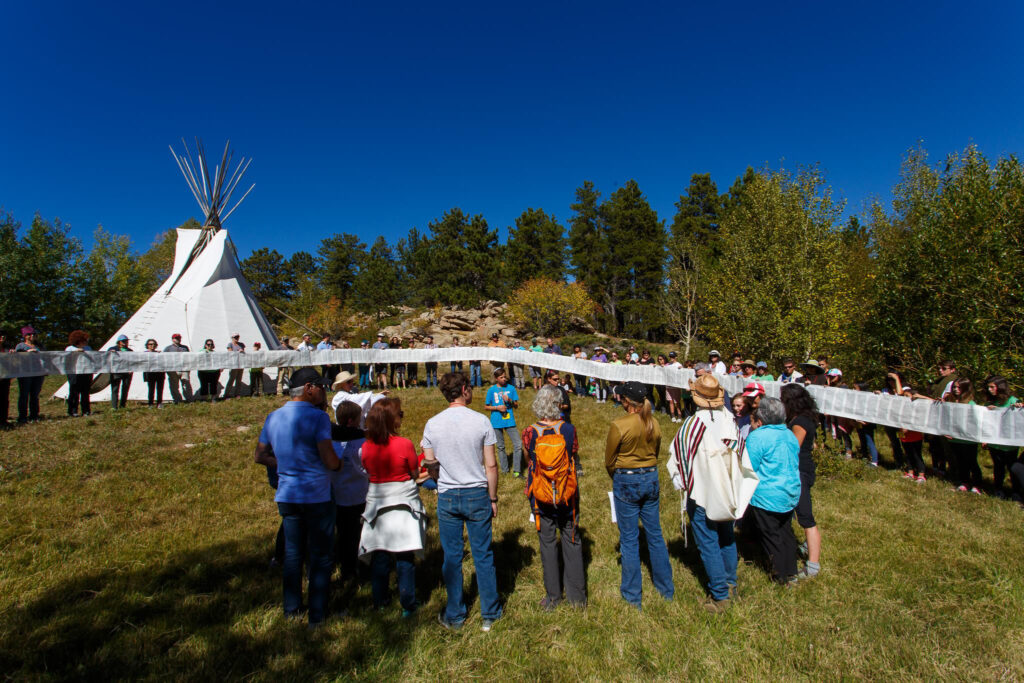
She added of her approach to the Adventure Rabbi offerings, “You would probably want High Holidays, so we have another retreat for High Holidays. We have a Yom Kippur retreat that’s only for adults, and that’s incredible. There’s people that come yearly for it, and it’s probably one of the best things we do.”
And for Passover, a group of 150 attendees join Korngold in Moab, Utah, for a retreat that includes singing on the banks of the Colorado River, a catered Seder, hiking and other group activities.
“Everyone participates, I’m up in front with my guitar, I invite people up to do different parts,” she described. “We have a backpacking Torah, it’s a 150-year-old scroll, it’s about a third of the size of a normal Torah, and we carry it up with us in a backpack. Everyone stands in a circle and we unscroll it, and then we chant in Hebrew and English the Exodus story from the Torah.”
Like in the story of Passover where a series of plagues come down upon Egypt, sometimes the unexpected happens when operating outdoors, but Korngold looks for the bright side regardless.
“I’m not trying to put adversity into my programs, but there’s something to be said for a little adversity,” said Korngold, who mostly experiences sunshine in Boulder but has dealt with inclement weather at times. “We’re the adventure rabbi program, not the slacker rabbi program, I like to say.”

